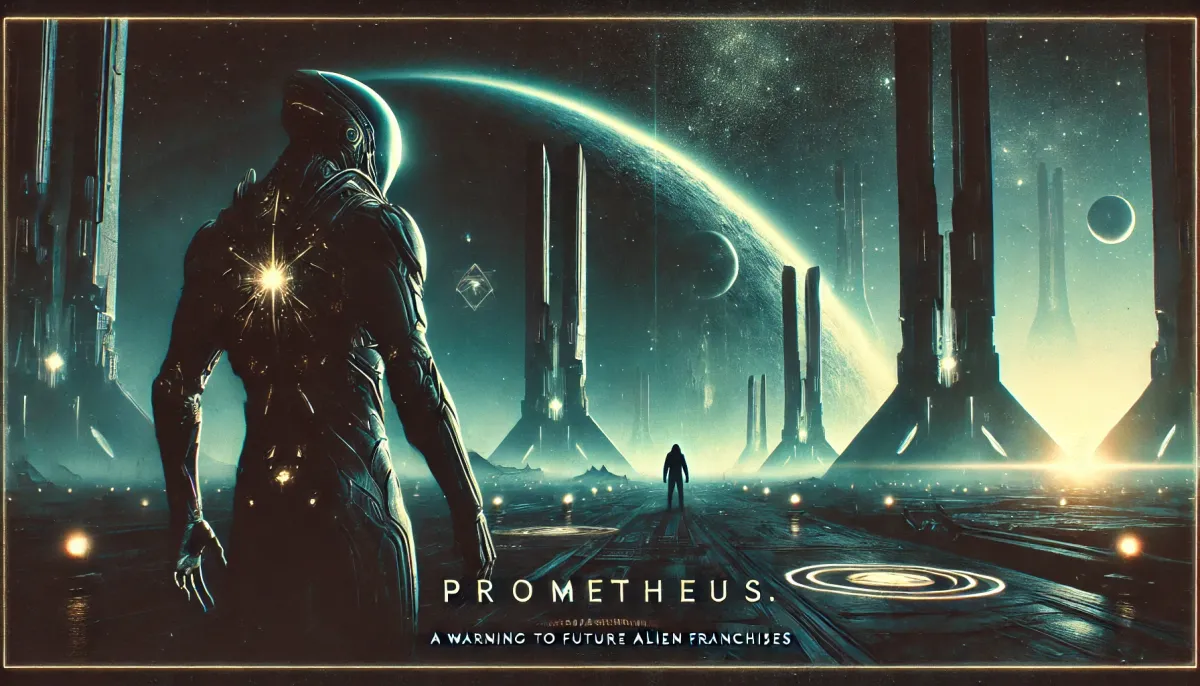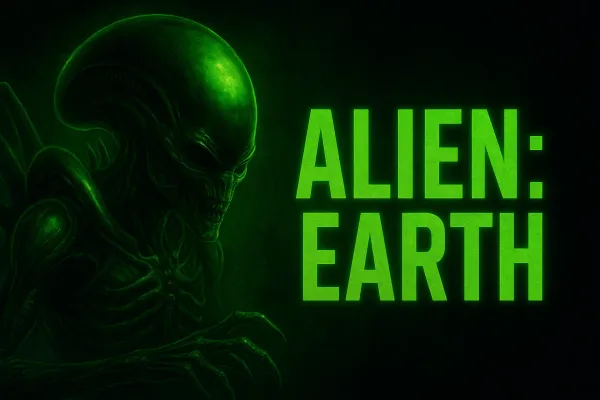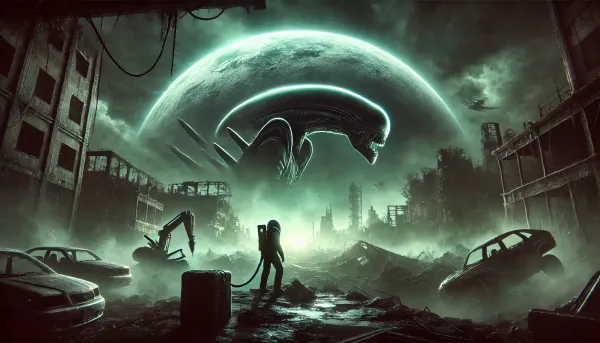Prometheus Was a Warning to Future Alien Franchises

The Alien franchise has always thrived on mystery. When Ridley Scott’s Alien first hit theaters in 1979, it left audiences equal parts terrified and intrigued. Who created the xenomorphs? What was that mysterious Space Jockey? And why did Weyland-Yutani have such an obsession with capturing a facehugger at any cost? These questions added to the allure of the Alien Quadrilogy and made it a series with endless potential for fan theories. But then came Prometheus—a movie that took a flamethrower to these unanswered mysteries, igniting passionate debates among fans.
While Prometheus gave us stunning visuals and a chilling origin story for the Engineers, it also did something unexpected. Instead of deepening the mystique of the Alien franchise, it risked unraveling it. And that risk, some argue, is the point. What if Prometheus wasn’t just an origin story for the xenomorphs but also a meta-warning to filmmakers about tampering with beloved franchises?
The Engineers and the Risks of Over-Explaining Mysteries
At its core, Prometheus explores hubris—the dangers of playing god and messing with forces you don’t fully understand. The Engineers, those tall, pale, ancient beings, created life across the galaxy, only to be destroyed by their own creations. Sounds familiar, doesn’t it? Replace the Engineers with filmmakers and their “creations” with over-explained plotlines, and you’ve got a pretty convincing metaphor.
Think about the xenomorph queen from Aliens. James Cameron expanded the lore with her introduction, but he didn’t spoil the mystery of the species. Fans got just enough to be amazed but were still left hungry for more. Fast forward to Prometheus, and suddenly, we’re handed a detailed backstory about the Engineers being the architects of humanity—and indirectly, the xenomorphs.
It’s a classic case of “too much of a good thing.” The mystery that made the xenomorphs and their deadly life cycle so chilling started to fade when we learned they were an accident born from black goo experiments. It’s like finding out the facehugger you were terrified of as a kid was the result of a lab mishap instead of some primal, unknowable force.
Ridley Scott: The Real-Life Engineer?
Here’s where things get juicy. In the Alien universe, the Engineers’ downfall is a direct result of their arrogance. They created humanity, only to have humans turn against them. Then they created bioweapons (the black goo) that wiped them out.
Now, let’s compare that to Ridley Scott. He’s the creative “Engineer” of the Alien franchise, the mastermind who gave us the original Alien and then came back decades later with Prometheus. But instead of giving fans the xenomorph queen, facehuggers, or retro aliens we expected, Scott turned the franchise into a philosophical exploration of creation and destruction. It’s as if he’s warning himself—and other filmmakers—that pushing too far can lead to unintended consequences.
Fans were divided. Some appreciated the bold new direction of Prometheus; others just wanted a good old-fashioned xenomorph horror story. Is it possible that Scott anticipated this backlash? After all, Prometheus is a cautionary tale. The Engineers paid the ultimate price for their ambition. Could Scott have been subtly saying, “I know this might blow up in my face, but I’m doing it anyway”?
The Prometheus Effect on the Alien Franchise
Looking at the Alien Quadrilogy, one of its greatest strengths is how each movie adds something fresh without over-explaining. The original Alien is a masterclass in claustrophobic horror. Aliens cranks up the action, introducing the xenomorph queen and a new layer of dread. Alien 3 strips everything back to a grim survival tale, while Alien: Resurrection... well, let’s just say it tried.
What made these films work (for the most part) was their restraint. They expanded the lore without completely defining it. The xenomorph remained terrifying because it was still a mystery. But Prometheus broke that pattern by diving headfirst into the mythology, leaving some fans longing for the simplicity of a retro alien horror flick.
This shift raised a big question: Should every mystery be solved? The Engineers were fascinating when they were just a haunting skeleton in a derelict ship. By fleshing out their story, Prometheus may have taken away what made them so intriguing. It’s the storytelling equivalent of taking apart a clock to see how it works, only to find out you’ve broken it in the process.
The Legacy of Prometheus
Despite its divisive reception, Prometheus left an undeniable mark on the Alien franchise. It challenged fans to think differently about the universe they love. It dared to ask big questions, even if the answers weren’t what we wanted. And it set the stage for Alien: Covenant, which tried to blend the philosophical musings of Prometheus with the visceral terror of xenomorphs and facehuggers.
But the warning of Prometheus still stands. The Engineers remind us that even creators can lose control of their creations. Whether it’s a deadly bioweapon or an overly ambitious franchise reboot, there’s always a risk of going too far.
For fans, Prometheus might not be the definitive Alien prequel, but it’s an essential chapter in the saga. It’s a reminder of why we fell in love with the Alien franchise in the first place: the fear of the unknown. And maybe that’s the lesson Ridley Scott wanted to teach us all along. Also, were you able to notice hidden details of the movie that can create a whole new impression about Prometheus?
Final Thoughts
The story of Prometheus—both on-screen and behind the scenes—feels like a meta-commentary on the perils of revisiting beloved franchises. The Engineers' downfall mirrors the risks filmmakers take when they mess with iconic lore.
As fans, we may not always agree with the creative decisions behind movies like Prometheus, but they keep the Alien franchise alive and evolving. Whether you prefer the retro alien vibes of the original Alien or the heady philosophical debates of Prometheus, one thing is certain: the Alien universe is as fascinating—and as dangerous—as ever.
So, the next time you watch Prometheus, think about it as more than just a movie. It’s a cautionary tale for anyone who dares to create something new, be it a deadly xenomorph or a sci-fi epic. Just remember, some mysteries are best left unsolved.
What do you think? Was Prometheus a worthy addition to the Alien franchise, or did it stray too far from the xenomorph queen and facehugger horror we know and love?




